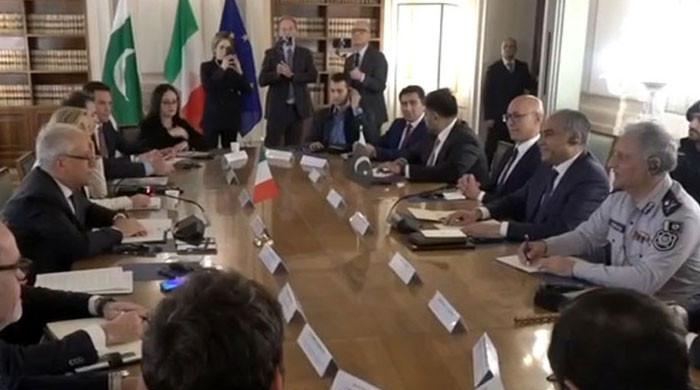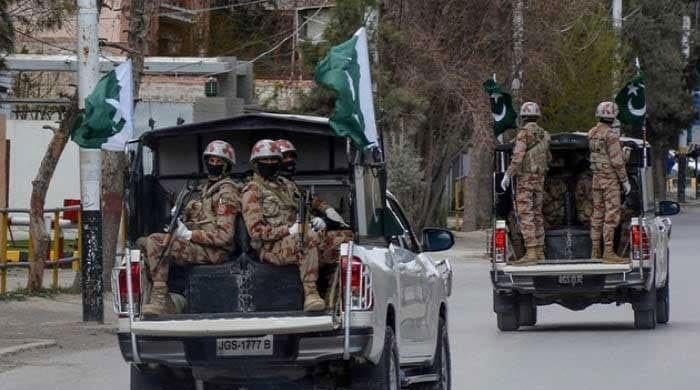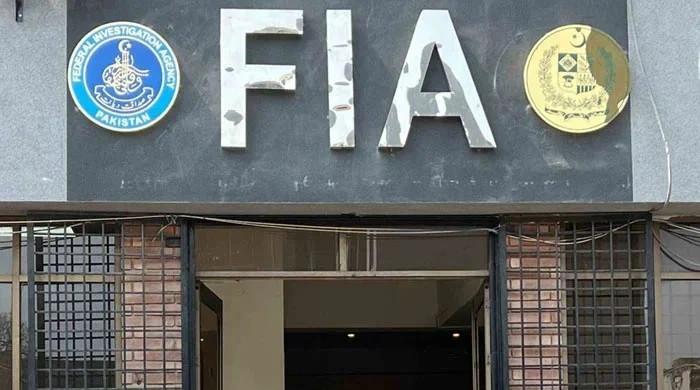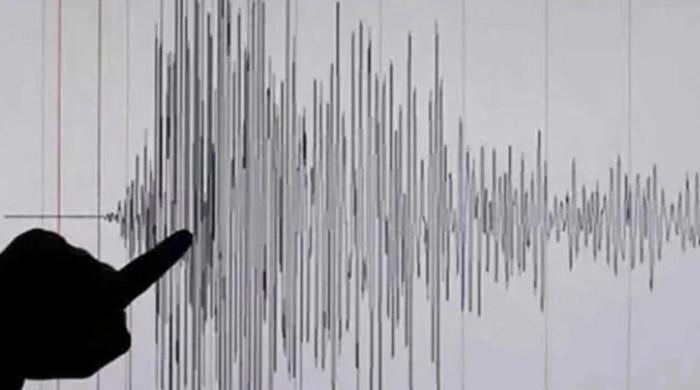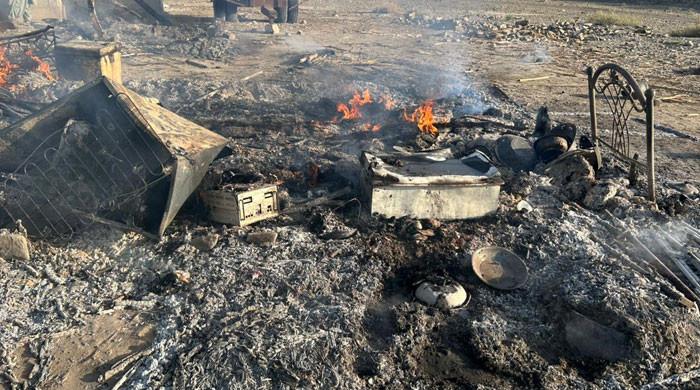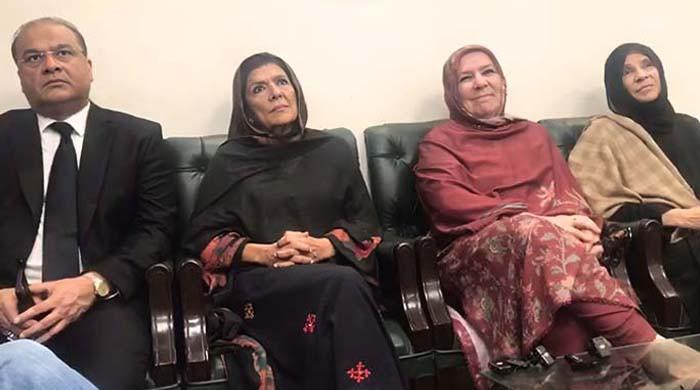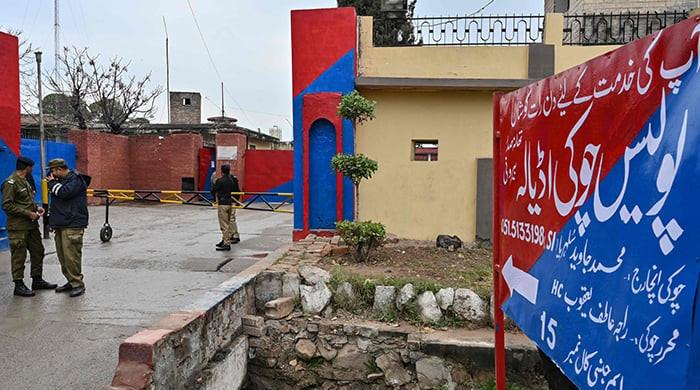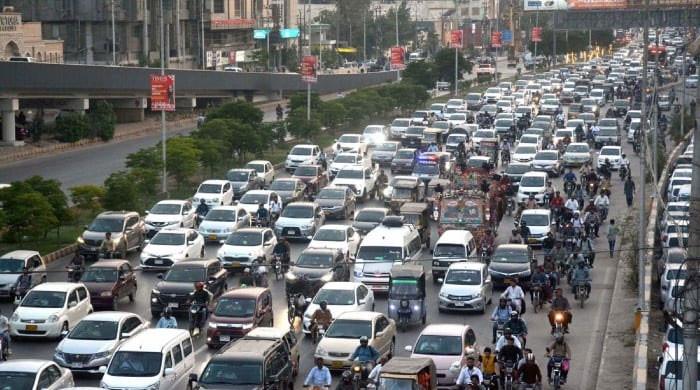Punjab Assembly stands dissolved as governor refuses to sign summary
Legislative dissolved as 48 hours pass after Punjab CM asked governor to disband assembly
January 14, 2023
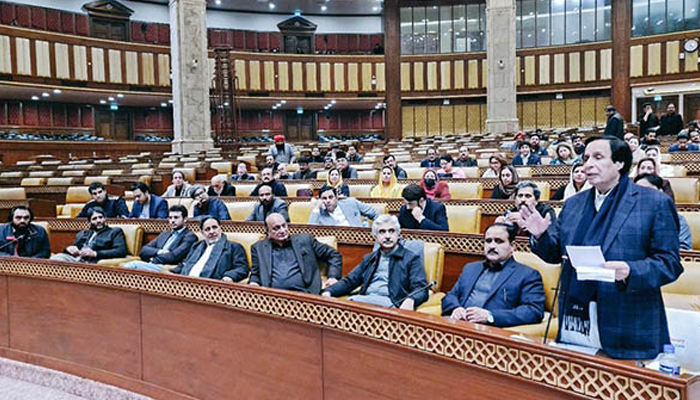
- Assembly dissolved as 48 hours pass after CM moved summary.
- Governor Rehman decides to not become part of dissolution process.
- "I would rather let Constitution take its own course," governor says.
The Punjab Assembly has been dissolved after the governor, Baligh Ur Rehman, refused to sign on the summary sent for disbanding the legislative, sources said Saturday.
Punjab Chief Minister Parvez Elahi — who will serve as CM until a caretaker government is appointed — had forwarded the summary of dissolution on Thursday, and as per the Constitution, the assembly dissolves within 48 hours regardless of the governor's decision.
Rehman — a leader of the Pakistan Muslim League-Nawaz (PML-N) —refrained from the dissolution process and decided to let the Constitution take its course.
"I have decided not to become part of the process leading to the dissolution of Punjab Assembly. I would rather let the Constitution and law take its own course."
"Doing so will not hamper any legal process as Constitution clearly provides a way forward," the governor — who had earlier termed the assembly's a "hard one" — said.
Pakistan Tehreek-e-Insaf (PTI) Chairman Imran Khan had announced the dissolution of the assemblies — Khyber Pakhtunkhwa and Punjab — in November last year. However, the plans were delayed due to consultations with allies and countermeasures adopted by the ruling allies in the centre.
In response to the governor's statement, PTI Senior Vice Chairman Fawad Chaudhry said this wasn’t the first time he had "trampled the democratic decisions just to please your undemocratic masters".
Taking to his Twitter handle, Fawad said: “Your decision was against the dignity of your position”, claiming that as 48 hours have passed the assembly now stood dissolved.
The former information minister said that the PTI will now face the Pakistan Democratic Movement (PDM) in the field.
Ahead of the assembly's dissolution, former Prime Minister and Pakistan Muslim League Nawaz (PML-N) supremo Nawaz Sharif directed the party's leadership to prepare for elections in Punjab.
The PML-N elder made these remarks in a consultation meeting of the party in London, according to a statement from Minister for Information and Broadcasting Marriyum Aurangzeb.
Nawaz also instructed the party to establish a parliamentary board, according to Aurangzeb, and directed all workers to "go ahead with full passion, confidence, and full preparation and strength".
The formation of caretaker govt
Following the dissolution, Rehman sent letters to CM Elahi and Leader of the Opposition in the Punjab Assembly Hamza Shahbaz for the appointment of a caretaker government.
However, if an impasse, between the two leaders — CM Elahi and Hamza — lasts for three days over the appointment, then the speaker will form a committee comprising six members of the outgoing assembly with equal representation from the treasury and the opposition.
To the committee, the CM and the leader of the opposition will forward two nominees each.
The committee then will have three days to evolve consensus on one name. If that fails as well then the names of the nominees will be referred to the Election Commission of Pakistan (ECP) for a final decision within two days.
The selected nominee will perform their duties as the interim CM until the formation of a new government in the province. The interim CM also has the power to induct his own cabinet.
Following the placement of a caretaker chief minister, the election commission is bound to carry out general elections in the province within 90 days.
The electoral body can hold polls within 22 to 45 days because constitutionally it requires at least 22 days to scrutinise the nomination papers of the candidates.
The candidates will be given 29 to 30 days to run the election campaign. Considering such a timeline, it is possible that the ECP may conduct the polls between March 1-April 10.




